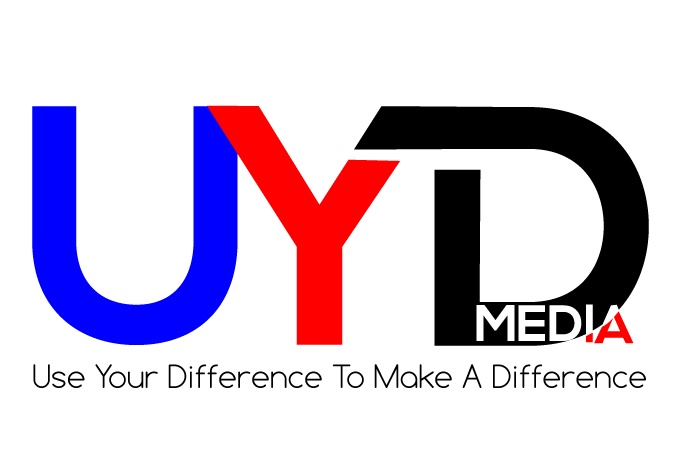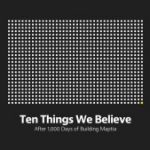3 Cultured Kids (3CKs) is an interview series touching upon questions related to the multi-faceted lives of Global Nomads and/or TCKs.

From left to right: Michino, Andrew, and Michael
What recent leadership positions have you held?
Michino: The first one that pops in my head is being the President of the International Students Association (ISA) during my senior year in undergrad. ISA is a student club at Clark University that holds events that promote and celebrate cultural diversity on campus, and consists of 35+ dedicated e-board members. Being a President of this club for a year meant devoting a lot of time and energy and dealing with many challenges, but it was one of the most rewarding and self-enriching experiences I’ve ever had. I also served as the International Students Orientation Coordinator for the orientation season in August 2015. For this year I’m interning with the office of Students Leadership and Programming (SLP), and I’m working with the director to bring forward the “Leadership” component of SLP and support students embrace and grow more from their experiences.
Andrew: I currently work as a race director with Spartan Race where I work closely with a number of other international and local staff to coordinate obstacle course races in South East Asia.
Michael: I started a club recently! In actuality, a club at my school died out a few years back, and so a friend and I decided to revive it and improve upon what it was. What used to be called the ‘Outing Club’ is now the ‘Adventure Club’, and within a month of school starting we gathered over 100 members who were interested in exploring and experiencing the outdoors. Over the past few months we’ve held more than a half dozen trips with an average of 10 people on each one. The trips have been organized by members and club leaders alike and have ranged from simple day trips to three day hiking expeditions. I think I’d call it more of a ‘soft leadership’ role though, since so much of the work is done by the members of the club.
Do you tend to go for leadership roles or follower roles? What do you think influences this?
Michino: I tend to go for leadership roles, and I think my family must be the biggest influence on this aspect of my personality. Both my parents are extraverts who find source of joy in doing something with other people, and I’m guessing they are the reason my older brother and I also turned out that way. My dad has practiced and taught Kendo in every place that we’ve lived, and my mom has turned our house in Dhaka into a ballroom dance studio and had over 100 students by the time we left the country. To think about it, the spirit of “make things happen so you and others involved can have a good time” runs in my family.
Andrew: I tend to go for leadership roles when appropriate, though I enjoy leaning into a “follower” role when my team members step up to the plate and take ownership. This may be self-evident, but I’d like to point out that the best leader’s I’ve worked with understood the importance of being just as good of a follower as a leader when you’re not the best suited to lead. I’m a little overly critical. I like to think even the most effective products and practices can be improved upon, maybe to a fault. I’m not necessarily attached to my own ideas. My goal is to work with everyone towards improvements by any means. I guess that leads me into a leadership role when I’m able to do it well.
Michael: It depends on the situation really. If nobody else is willing to be the leader, I’m more than happy to take the position, but I don’t think I’m pushy enough to demand leadership. So, in smaller groups I tend to fall into the role, but in larger ones there’s almost always someone who wants to be in charge, and I’m a-okay with that. I’m not entirely sure what influences me in terms of being a leader. I guess I’m comfortable under pressure, and with eyes on me. But on the other hand, I’m non-confrontational enough that I wouldn’t want to step on toes by claiming leadership if someone else wanted it.
Why do you think cultural understanding is important for a leader and how has it played a role in your life?
Michino: One of the many things I think a good leader should possess is the ability to have an honest conversation with everyone in the group. Honest conversations require mutual respect and sense of trust that your ideas will not be dismissed immediately, and I think cultural sensitivity plays a big role in fostering those requirements. In my life, having the awareness of how different cultures value certain things over others (ex: individualism and collectivism) and have very different social norms (ex: how to speak to someone older than you) has allowed me to stay flexible and open-minded even when I’m taken back with something someone said.
Andrew: I grew up living abroad in a number of countries and regions. I thought I was well accustomed to dealing with cultural differences and didn’t expect it to be an issue when I took this job in SEA. I worked on a race in Singapore this past November and at no other time has the importance of cultural understanding been more evident to me. I was working with an very precise and well organized local team of event organizers to put on one of our signature 5K “Sprints”. With their approach to the planning process, it was clear that they wanted to have all details in place well ahead of race day. I approached this process expecting to have the flexibility to change plans as issues came up, accounting for the fresh staff and suppliers we were working with as well as my own newness to this work. When it came to race week, some of our support staff from the US and I noticed a few red flags as the race festival began to take form. We brought the matter up with our local partners and asked them to direct their suppliers and labor to make the necessary changes. A few days and a number of tense conversations later, we made a few changes that we agreed were critical, while a number of requested changes were strongly opposed due to the strict review, permitting, and planning processes we were expected to abide by. The key issue here was that I had assumed (dangerous) we would be able to operate like we typically do when production issues arise. Though in this instance we unfortunately had to rather aggressively push our desired changes, I learned an important lesson I’ve already begun to put into practice with this team and our other partners in the region countries. Lesson learned: Be more proactive about identifying cultural differences in business settings and any other time it might be a severe obstacle.
Michael: Cultural understanding is extremely important in leadership! I’d argue that ‘human understanding’ is important, in that you’d want to understand each member of your team or group as the leader, but culture is such a huge part of an individual. If you truly understand your group members and their cultures, you’re bound to be a better leader. For example, some cultures heavily reward ‘go-getters’, and those who show independence in the workplace. Some cultures do the exact opposite, and reward those who follow directions to a tee, nothing more and nothing less. Understanding this will help you when giving tasks and setting expectations for a person.
How has your educational background influenced your ability to communicate effectively in a group or team project?
Michino: My upbringing of having to make new friends all the time, whether I was the new kid or with new kids coming into my school, has made me above-average at breaking the ice of initial awkwardness. I’ve learned that to get things done effectively as a group, everyone needs to be invested and feel comfortable enough to pitch in their ideas. I think the ability to quickly break the ice helps to create a more open atmosphere in the group, giving space for more ideas to be produced and communicated.
Andrew: A good amount of work I did in college at Clark University was team based. I think we could do with even more though and I certainly could have sought out more opportunities! It’s easy to talk about the best ways to work in teams and it even comes naturally to some people, but practical experience and working with a wide range of individuals is the best way to get better at this. In hind sight and looking forward I think you will really help yourself if you actively search for opportunities to work with new people and learn to work around difficult team dynamics
Michael: Having the ‘international school’ experience is something that I can never over-value. Smaller class sizes filled with smart people made for a wonderful learning environment. Most, if not all of my classes heavily relied upon class participation and discussion, and the variety of perspectives forced open-mindedness and appreciation for different viewpoints. I’ve noticed that in groups I have a habit of forcing people to speak up, which can be daunting for some of my quieter and more reserved group members, but usually they’re the ones with the best ideas, so it tends to pay off.
What skills have you gained from your international experience and how do they make you a better team player?
Michino: From my international experience, I’ve learned listen to others and try to understand the context, because I know from experience that my perspective is only one of the many. I’ve also learned to make sure everyone is on the same page. Clarifying is important because you never know what others know or don’t know, and it’s obviously not pleasant to be left out of the conversation because you don’t understand what’s happening. I’ve noticed that many of my TCK friends are also natural at making the conversation inclusive, and it’s probably because we grew up having to explain certain cultural concepts for people to understand and appreciate our stories. Another small perk of my international experience is the ability to comprehend even if the person’s accent is fairly thick, simply because I’ve already been exposed to a variety of accents. This also plays a role in ensuring inclusivity in the group dynamic.
Andrew: Having worked internationally this past year, my greatest areas of improvement continue to be understanding and making use of team members’ unique skill sets, and empathizing with team members with widely different perspectives from my own. Working on this shortcoming has really helped me better understand team member’s perspectives and needs, allowing us to work together more effectively and really enjoy the process.
Michael: As I mentioned before, I think that the classroom setting at my schools led to my ability to seek and appreciate new and fresh ideas and views. It makes me take a back seat in a lot of decision making situations, even as a leader. I think that’s a good thing, it means that I’m not desperate for recognition or attention, and am more concerned with the teams success as a whole.
Michino was born in Japan, but has lived in three other countries before coming to the United States for college. She lived in Hong Kong for 2.5 years as a baby and then in Japan for 2 years as a toddler. As a kid, she spent 5.5 years in Thailand, 2 years in Japan, and she spent her 6 teenage years in Bangladesh. After graduating from Clark University with a B.A. in Geography, she is now enrolled in the accelerated M.S. program in GIS (Geographic Information Science) also at Clark University. In the future, she hopes to work internationally to maximize the use of geospatial technologies in the field of disaster risk reduction and management. Please click for her LinkedIn.
In Andrew’s own words: When I was 7 my dad and I moved from D.C., USA to the Dominican Republic for his work. We continued moving every few years taking us to China, Sri Lanka, and Thailand. I returned to the US to attend Clark University. Clark is a special place. Voted one of the most awkward schools in the US one of the years I was there (No joke, here’s the link: http://bit.ly/1ZayehY), it’s a place where anyone and everyone fits in. I found my place with the members of the International Students Association. I’m still not entirely sure what it was that united over other than that “international” label and some form of cultural confusion. We put on amazing events, partied hard, and became family, enough sentimental reminiscing for now. Post college I was recruited by Spartan Race to work on expanding their products into South East Asia. Now I bounce around the region from hotel to hostel (by choice) working on our events in the region. Life is what you make of it, but it’s not too hard to enjoy this work! I enjoy following others more than posting about myself, so I don’t really have any blog or accounts I could encourage anyone to follow aside from my facebook. Though I would encourage people to follow one of my mentors, Johnny Waite @ https://www.facebook.com/johndavidwaite. He regularly posts inspiring quotes, thoughts, and pictures from the fun loving life he lives.
Michael was born in D.C. and spent half his adolescence overseas before going to North Carolina for college. He has lived in Pakistan, Germany, India, and Thailand, moving every two to three years from the time he was four years old until he graduated high school. He now studies Computer Science and lives in Raleigh, NC, but with itchy feet. His next goal is to explore the United States since he has not had the chance to do so yet. Please click for his website.




